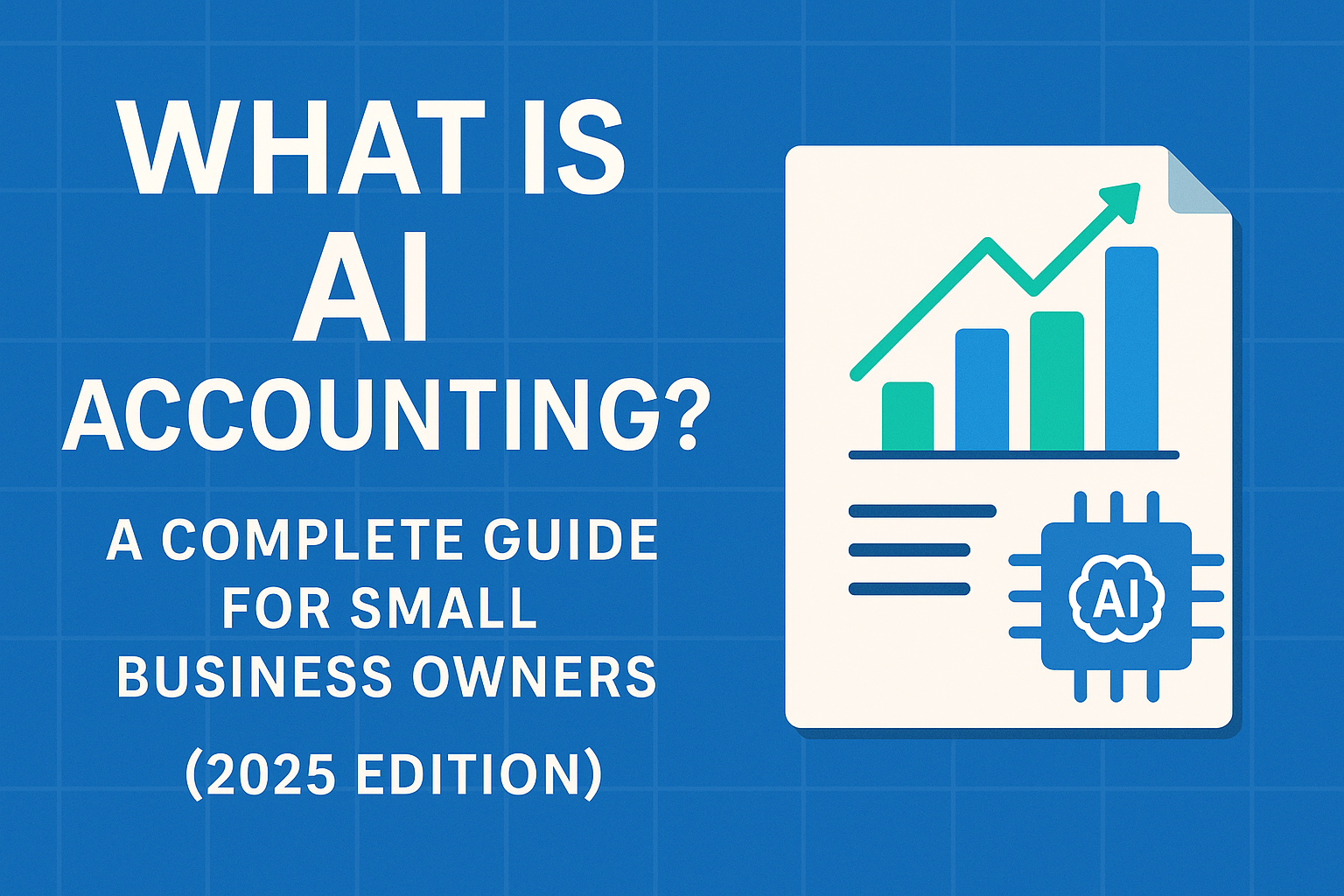
Running a small business is hard enough without spending hours buried in spreadsheets.
From chasing receipts to managing cash flow, finance often feels like a never-ending to-do list.
That’s where AI accounting comes in — a smarter, faster way to manage your books that’s redefining how small and medium enterprises (SMEs) handle their finances in 2025.
In this guide, we’ll break down what AI accounting actually is, how it works, and why it’s quickly becoming one of the most valuable tools for modern business owners.
AI accounting is the next evolution of digital bookkeeping.
Instead of relying on humans to manually enter, categorize, and reconcile every transaction, artificial intelligence (AI) automates those tasks — and learns from them over time.
In simple terms:
AI accounting combines automation, data analysis, and machine learning to handle repetitive finance tasks like:
Unlike traditional software that follows fixed rules, AI systems improve with use, adapting to your business’s unique spending and revenue patterns.
AI accounting platforms like ccMonet use machine learning models trained on millions of financial transactions.
Here’s what happens behind the scenes:
It’s like having a digital accountant that gets smarter with every transaction.
For SMEs, time and clarity are everything.
AI accounting delivers both — along with several game-changing benefits:
Routine tasks that used to take hours — like manual data entry and month-end reconciliation — now take minutes.
Instead of waiting for your accountant’s monthly report, AI tools show you up-to-the-minute insights into how your business is performing.
AI reduces human error and flags inconsistencies automatically — helping you avoid costly mistakes.
AI transforms financial data into actionable insights, helping business owners plan cash flow, forecast growth, and invest wisely.
With platforms like ccMonet, both owners and accountants can view the same live data — no endless email attachments or version confusion.
No — and it shouldn’t.
AI accounting doesn’t replace accountants; it enhances their work.
By automating the repetitive, accountants can focus on the meaningful:
At ccMonet, AI and human expertise work side by side — AI handles precision; humans ensure context and compliance.
This combination creates accounting that’s not just automated, but accurate, intelligent, and human-centered.
Absolutely — when done right.
Reputable platforms use bank-grade encryption, access controls, and audit trails to protect your data.
ccMonet, for example, complies with local and international financial regulations to ensure every transaction remains secure and transparent.
In fact, automation often reduces compliance risk, because AI detects anomalies, ensures proper documentation, and creates a clear digital audit trail.
You don’t need a big team or deep tech knowledge to start.
Here’s a simple roadmap for small business owners:
Within weeks, you’ll see how AI turns accounting from an obligation into an opportunity.
AI accounting is transforming how small businesses manage money — replacing manual tasks with intelligent automation that delivers clarity, speed, and insight.
It’s not about replacing accountants or software; it’s about creating a financial system that thinks, learns, and evolves with your business.
ccMonet helps SMEs make that shift — combining AI accuracy with human expertise to simplify bookkeeping, strengthen compliance, and unlock the full power of your financial data.
Because in 2025, the smartest business decision you can make isn’t just to automate — it’s to intelligently evolve.